How the Swiss viewed Communism in the Cold War years
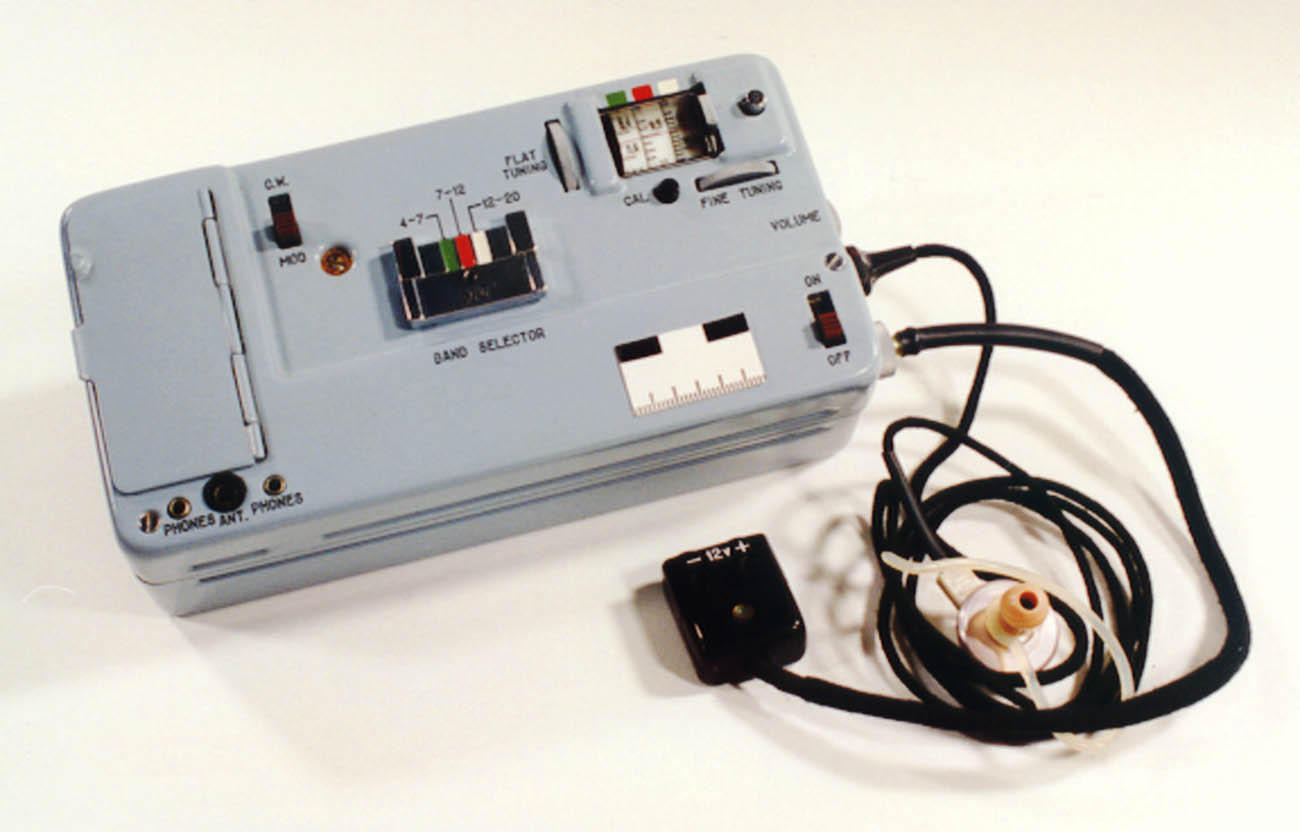
In Switzerland, the Cold War was waged in the minds of the people. Fear of Soviet Communism was widespread, and suspicion surrounded anyone who didn’t clearly distance themselves from it. The country was overtaken by paranoia that the enemy dwelt within.
In November 1956, Soviet tanks rolled into Hungary to nip democratic reform in the bud. Hundreds of thousands fled, many of them to Switzerland, where they were welcomed with a degree of warmth never experienced by refugees during World War II – nor by any other group of refugees in Switzerland since.
This article marks the beginning of our series “Switzerland and the Cold War” to mark 30 years since the Berlin Wall fell. The historian David Eugster sheds light on various aspects of Switzerland at the time: a neutral country, situated between two blocs, while clearly identifying ideologically with the West.
Why? The Hungarians were not just people in need, but brothers and sisters in the fight against communism.
At the same time, anger raged against those suspected of links with the imperialistic communism of the Soviet Union. The Communist Swiss Labour Party (Partei der Arbeit, or PdA) was mocked as the “Party of Foreigners” (Partei des Auslands) and its members were declared to be the enemy within. Their premises were attacked, several were fired from their jobs, and others were physically assaulted.

A tribal dance
The Soviet Union’s aggressive foreign policy clearly justified anti-Communist feeling. And the PdA was not very skilled at separating itself from the violent brand of socialism practiced under Stalin, which ended up costing it all its political strength after World War II. But Swiss anti-Communism went beyond democratic criticism; it became cult-like. The writer Friedrich Dürrenmatt described Cold War anti-Communism in the country as “a tribal dance of the Swiss”.
It was performed for a global public. After 1945, Switzerland stood isolated, and its neutral role in the war was viewed as suspicious by the victorious powers. Official Switzerland was particularly eager to position itself on the side of the “free world”. The rabble-rousing against Communism was also a way to avoid speaking about Switzerland’s own role in World War II.
As Dürrenmatt said, “we were no war heroes, so we wanted at least to be heroes of the Cold War.”
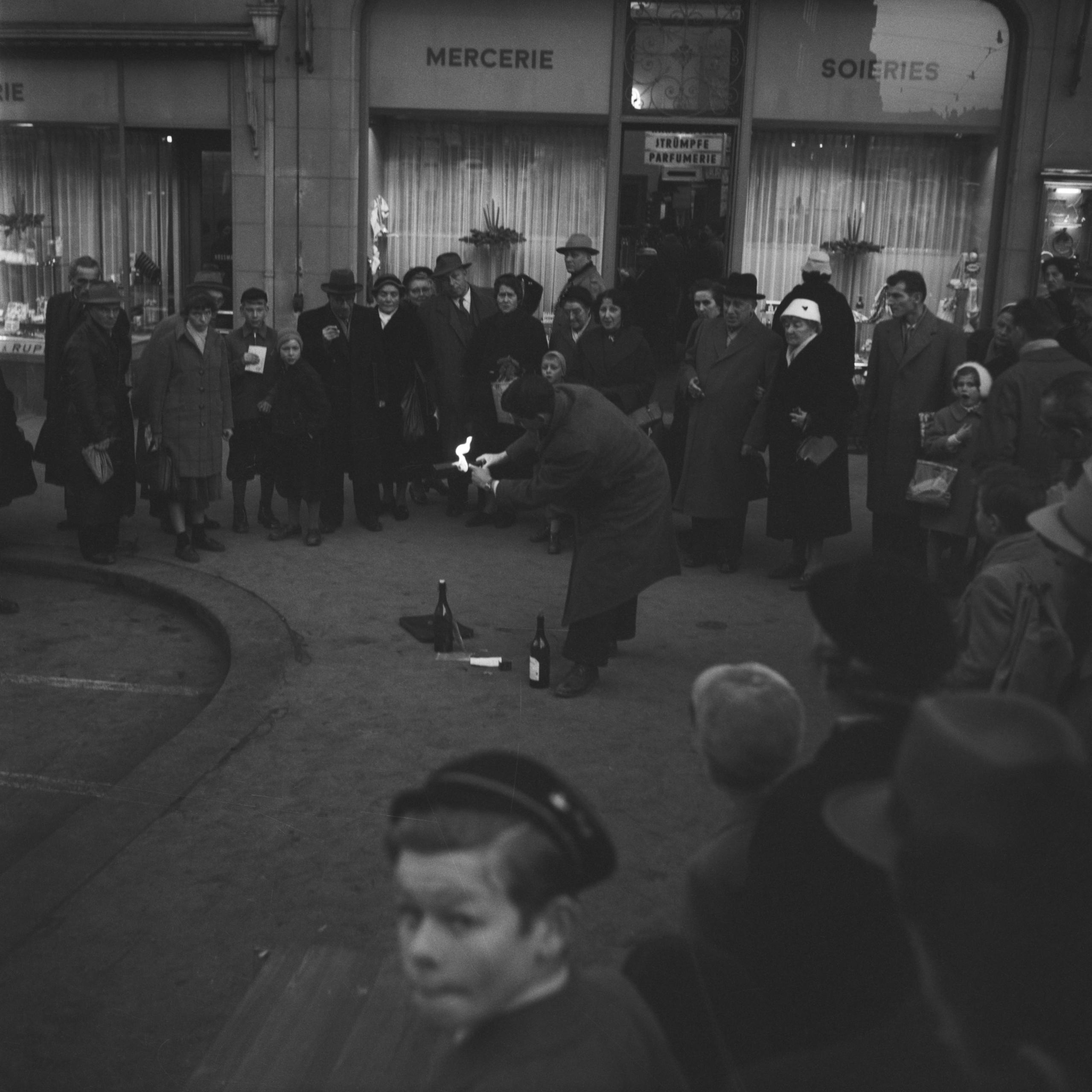
Brain-washing – the fear of psychological warfare
Communism was perceived as almost Satanic, something that had to be exorcised from people – in part because the Communist enemy was never really tangible. Though Moscow and Siberia were geographical places, the enemy, like Beelzebub, was never completely palpable and therefore omnipresent and omnipotent.
One widely disseminated scare story in Switzerland was that the Russians had access to sophisticated technologies that could penetrate people’s brains or souls, wiping out their individual will and power to resist. In 1956, Schweizer Illustrierte, a popular Swiss magazine, recounted the case of six Russian dissidents who had been rendered completely passive by a drug they were forced to take. If they had been ordered to jump out of the window they would have obeyed without hesitation, the article said.
Its conclusion: “where Russians are involved, nothing is too spooky to be true!”
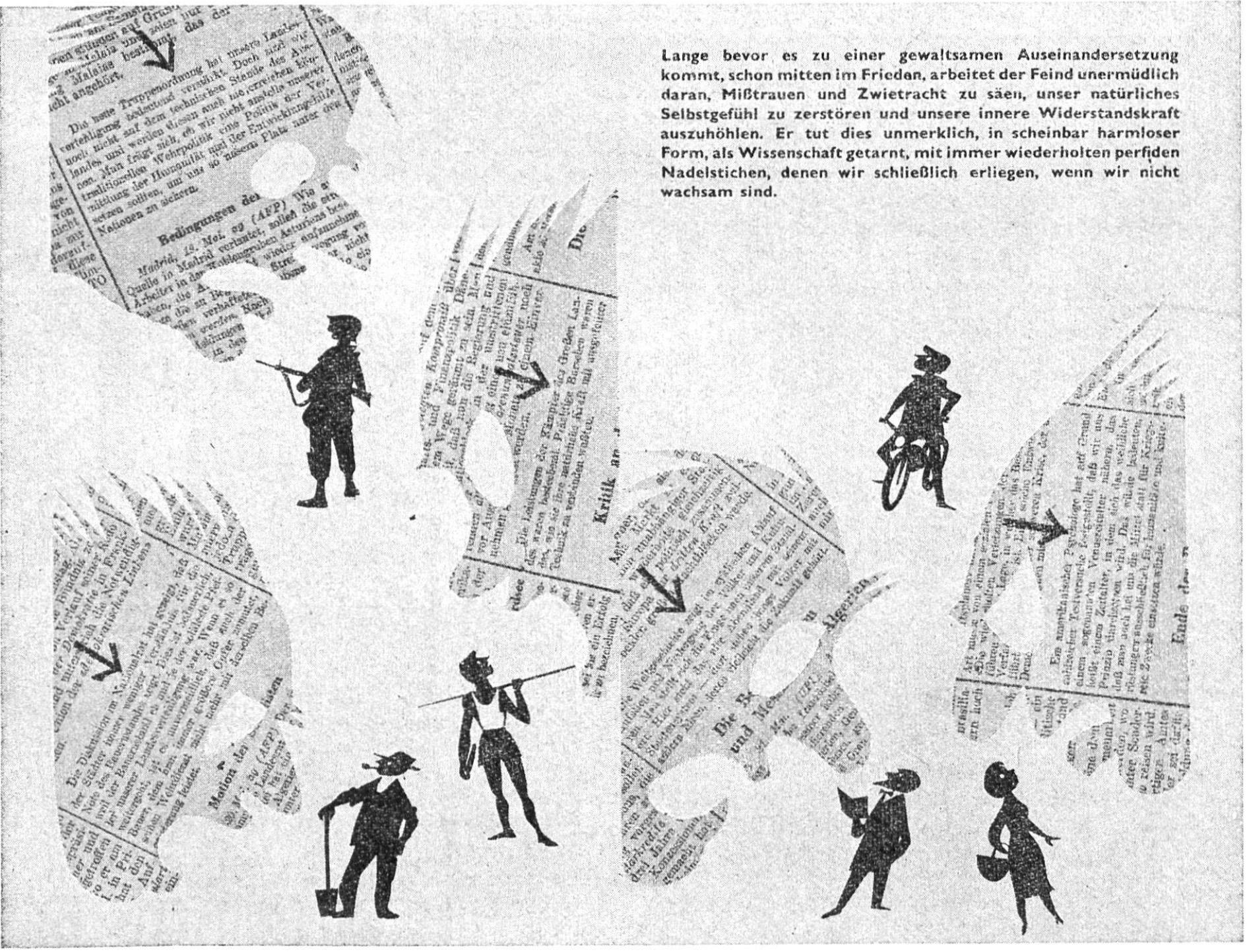
Keeping the population alert – and keeping it under surveillance
Numerous organisations saw it as their job to prevent the population from being brain-washed by subtle Soviet propaganda. Soon after World War II, groups that had been committed to mobilising anti-fascist sentiment during the war saw anti-communism as a new field of activity. The “Schweizerische Aufklärungsdienst” (Swiss Enlightenment Service, known by its initials SAD), founded in 1947 as the private successor to a state propaganda organisation, was a key player. SAD members sought to explain the dangers of Communism at lectures and conferences across the country, often with state financing.
At the beginning of the 1960s, the writer Jean-Rudolf von Salis wrote that anti-Communist paranoia had taken hold.
“There are people who catch a whiff of Bolshevik conspiracy in the most harmless retail cooperative,” he wrote. In this mindset, critics were always potential “subversives” secretly trying to undermine state institutions. Pacifists, they said, were just trying to weaken Swiss military power. Any newspaper article could weaken morale in the fight against evil. Anyone left of centre was suspected of infiltrating the military. So, anti-Communism was a useful way to marginalise criticism of the state, the army and the country.
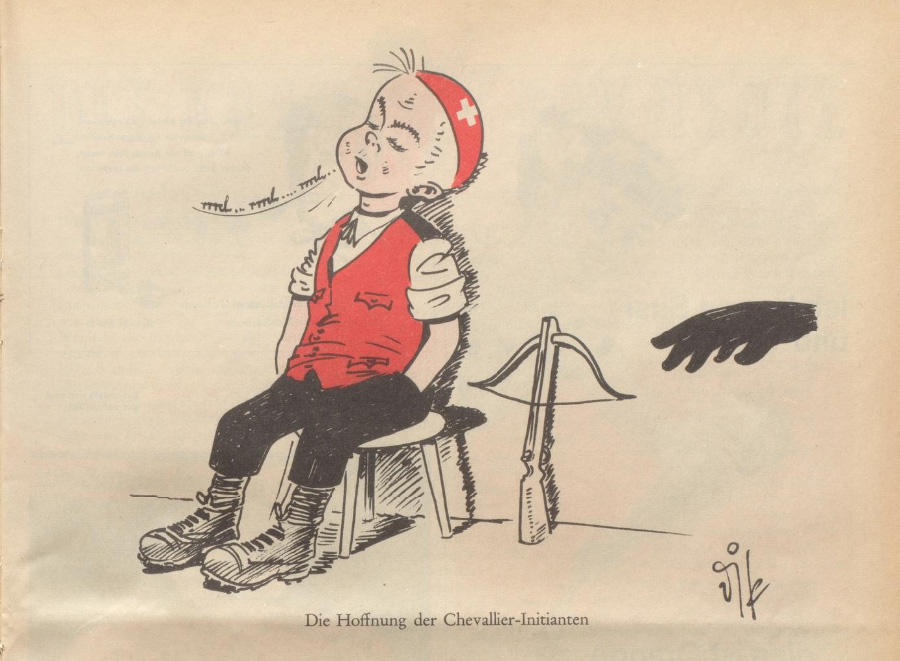
This demonisation of Communism and of everything that seemed related to it led to a situation where Switzerland, in one respect, became ever more similar to the regimes in the east – total surveillance.
In fact, the extent to which the secret services and police tried to document and monitor supposed political infiltration only became clear at the end of the Cold War. The so-called Secret Files Scandal of 1989 revealed that notes had been made on the politically suspicious behaviour of almost 700,000 people. The focus was not just on communists but on anyone who criticised mainstream society: those with any sort of left-wing tendencies, Greens, alternative thinkers, Third World activists, or feminists.
And anti-Communism didn’t really disappear with the end of the Eastern Bloc. Organisations like the anti-communist “Pro Libertate,” founded in 1957, sought to position themselves anew in a world that was no longer divided. Instead of Communism, they now talked about “political correctness.” They no longer issued polemics against the looming global revolution, but against transnational organisations like the UN and the EU.
Indeed, in 1989, the focus for anti-communist fears moved from Moscow to Brussels.
Translated from German by Catherine Hickley, swissinfo.ch

In compliance with the JTI standards
More: SWI swissinfo.ch certified by the Journalism Trust Initiative









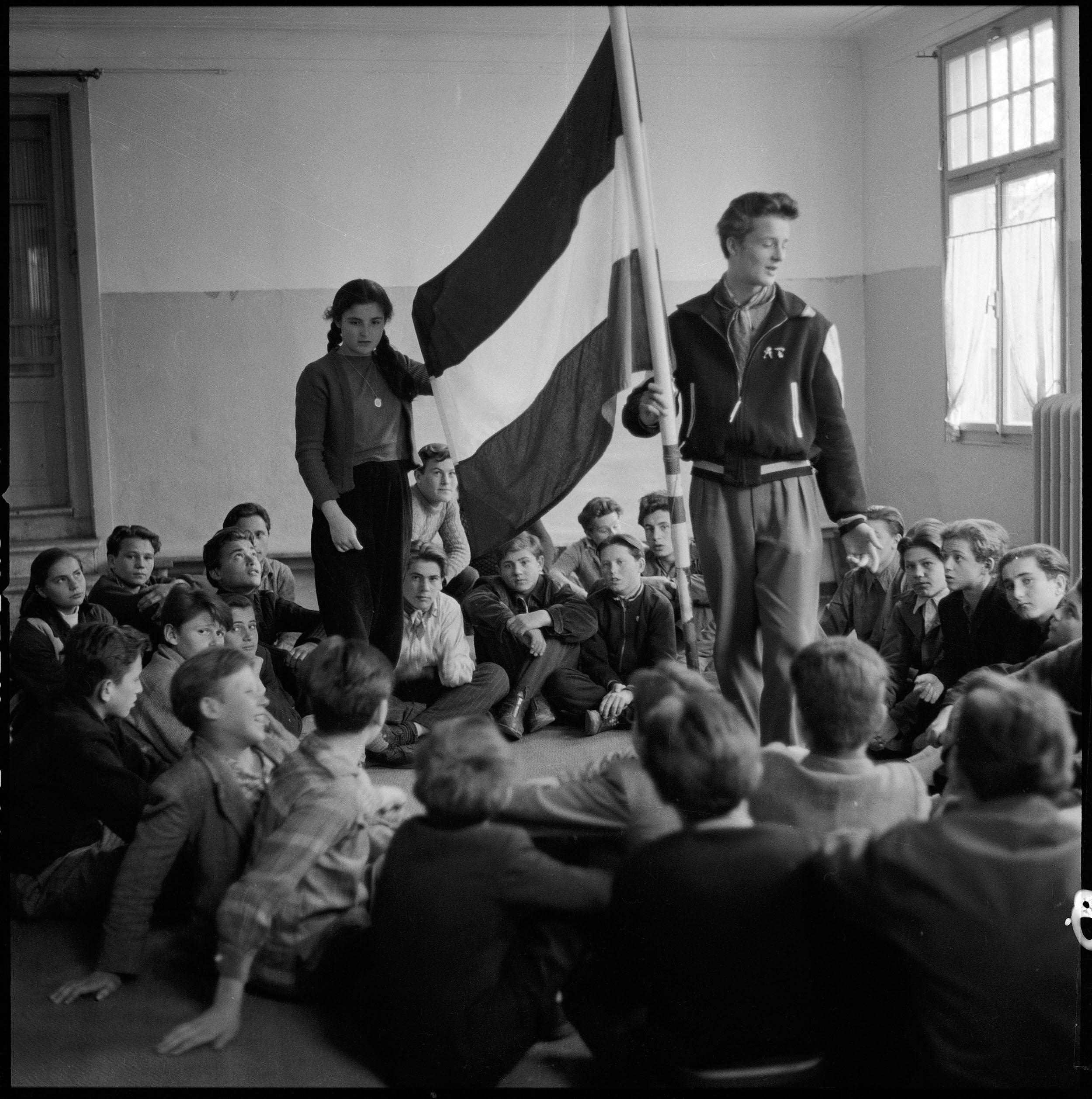
You can find an overview of ongoing debates with our journalists here . Please join us!
If you want to start a conversation about a topic raised in this article or want to report factual errors, email us at english@swissinfo.ch.